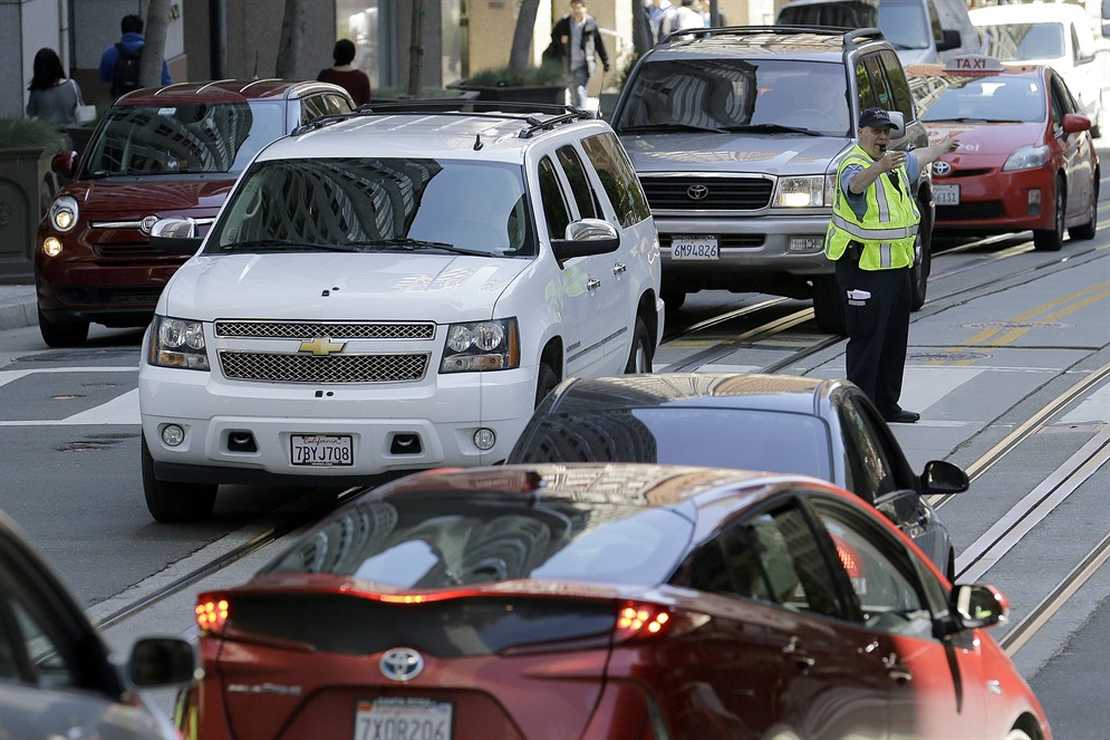
Ever since the summer of 2020 there has been an ongoing debate about why crime has gone up. Some have argued it was the result of the pandemic or gun sales while others, myself included, have argued that the crime rate seemed to be tied to the death of George Floyd and the anti-police marches that followed. The Ferguson Effect seemed to be happening nationwide. Whether cities and towns actually defunded the police or merely thought about it, there was a widespread message to cops that they had better step back lest they become the next target of anti-police crusaders.
Earlier this month, there was a story out of San Francisco which may have some bearing on the question of police taking a step back. An activist named Stephen Braitsch requested data on traffic tickets issued by the city over the past five years. What he found surprised him.
A new analysis of every traffic citation issued by San Francisco police over the past 4½ years shows enforcement of the rules of the road has plummeted. Incredibly, the 45 officers working in the department’s traffic division have issued a combined 10 citations a day this year.
Yes, in a city with nearly half a million registered vehicles, a ticket is written every 2½ hours, on average. That’s a huge drop in just three years: In 2019, the department issued an average of 74 traffic citations per day — or about one every 20 minutes…
Luke Bornheimer, another safe streets advocate who worked with Braitsch on the citation analysis, said, “People are picking up on the fact that police aren’t really doing their jobs. We know the streets are dangerous because people think, rightfully, that no one’s going to pull them over.”
It certainly sounds like officers are sitting back and not engaging in their jobs. But there’s another side to this story. San Francisco was one of the cities that vowed to defund the police in 2020. And like other cities that did this, they saw an increase in the number of officers retiring or resigning to find a job somewhere else. I wrote about this trend exactly two years ago. The San Francisco Chronicle reported the pace of retirements was double the rate in 2019: “If the police exits continue at the current pace, the SFPD is on track to lose nearly twice as many cops this year as it did last year and close to four times as many as in 2018.”
So one reason police are writing fewer tickets is that there are a lot fewer officers to write them.
READ RELATED: MSNBC in Shambles, New Prime-Time Host Alex Wagner's Ratings Tumble
Officer Kathryn Winters, an SFPD spokesperson, said the traffic division is at its lowest staffing level in 30 years and that, in 2019, it had 69 officers. The current 45 officers have other duties besides issuing citations, including investigating collisions, helping with efforts to increase police presence in the Tenderloin, and managing crowds at parades and marches.
“The officers assigned to the traffic company continue to go out every day balancing all of these obligations all while continuing to carry out their core mission of enforcing traffic safety in San Francisco,” Winters said in a statement…
Sgt. Adam Lobsinger, a department spokesperson, said there’s no work stoppage or wildcat strike.
“We’re 500 officers short,” he said, an oft-repeated statement that is questioned by some police staffing experts. “We’re out there doing the best job that we can.”
There’s some disagreement over whether the city is actually 500 officers short but it’s certainly several hundred officers short and that probably does mean that officers are called on to do other things because they don’t have the bodies to write tickets and patrol the Tenderloin for drug dealers, etc. all at the same time.
This story probably isn’t going away. A city supervisor is planning to hold a hearing on traffic enforcement once the summer recess is over. But it seems to me that this is at least partly a problem of SF’s own making. By siding with the defund the police activists, they wound up with a lot fewer officers and consequently some jobs aren’t getting done. SF isn’t alone in that regard. In Seattle, which has also seen a decline in officers, police stopped investigating sexual assault cases because they didn’t have enough officers to handle them.
There’s a solution to this problem and it’s not to blame the officers who haven’t left the city for failing to keep up with the extra work caused by the many who have left.
Source:






